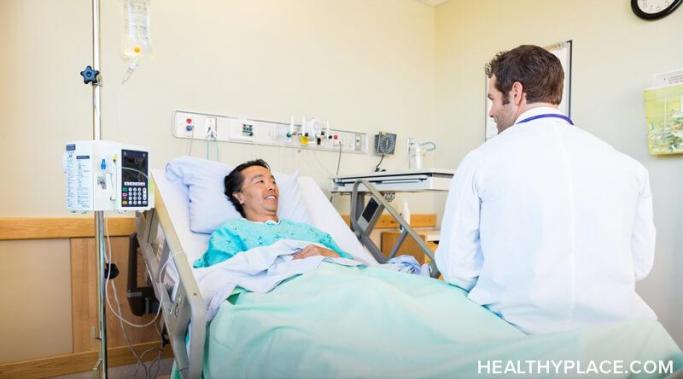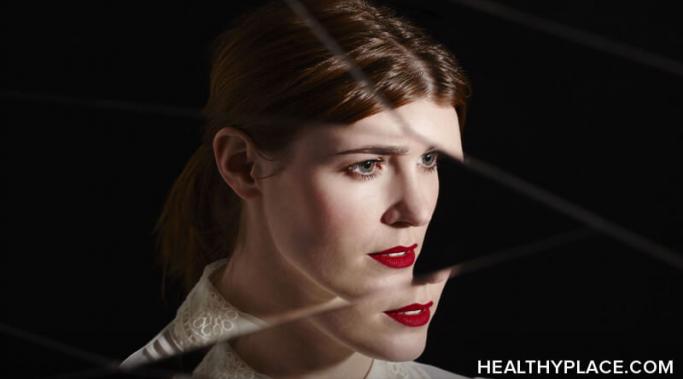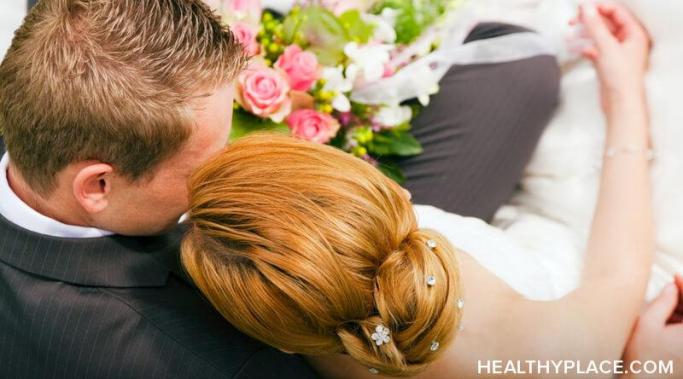I’ve written a lot about my past knee replacement surgery in my right leg. But I have another knee replacement in my left leg in less than a month. Since I know what to expect, I can prepare better this time. Hopefully, because of this, my schizoaffective anxiety won’t flare up as badly because of the surgery.
Living with Schizophrenia
Regardless of my schizophrenia, I have many relationships. I am married. I am a daughter, a sister, a friend, an employee, an instructor, etc. Most people who interact with me know that I have schizophrenia. The people with whom I am in a relationship and who make me feel the most comfortable and help me focus on something besides my illness are those who treat me like everyone else.
It can be hard to remember that hope is medicine. When someone is first diagnosed with a mental health condition, it can be difficult to accept, and it can seem as if the life you once knew is no longer possible or accessible to you. That's what it was like when I was first diagnosed with bipolar disorder with psychotic features. I had a similar reaction when I was later diagnosed with chronic paranoid schizophrenia. But now I know that even with schizophrenia, hope is medicine.
My recent surgery is negatively affecting my mental health. My last post was about having a schizoaffective episode right after the surgery. As if that wasn’t enough, I have had to go through and am going through a lot of other stress and anxiety, too. While my knee is healing well, the surgery's mental health impact is almost unbearable.
This August, I underwent knee replacement surgery and had a schizoaffective episode. I didn’t think getting this surgery would affect my mental health as much as it did. Here’s how I ended up in a schizoaffective episode.
Psychiatric advance directives are not something people talk about enough. Psychiatric medication has saved my life and helped me to function and participate in events and daily activities that I wouldn't be able to do without it. It also saved my marriage and allowed me to have successful relationships with friends and family. I believe my medication is why I do as well as I do (which isn't always great, but I have joy-filled days and many accomplishments that I can be proud of, given limitations). I want to communicate these things to doctors because medication is necessary for my treatment. I can do this by formulating a psychiatric advance directive.
I told my therapist that my primary goal was to learn to handle my anxiety so I could turn my focus to managing my symptoms of schizophrenia. In our second session, my therapist put forth a brilliant strategy worth the cost of this add-on to my psychiatric treatment. She said that when I first start to feel anxious, I should start using all the techniques I have learned to deal with anxiety attacks. By managing my anxiety, I can better manage my schizophrenia.
My husband, Tom, and I are celebrating our 15th wedding anniversary in September. He’s been very supportive of me in my struggle with schizoaffective disorder and anxiety every step of the way since we met. Today, I'd like to celebrate my husband.
Schizophrenia anxiety and anxiety can be intertwined with personality. When you have a severe mental illness, it is difficult to distinguish symptoms of that illness from your personality or life experiences (like upbringing, traumatic events, relationships, etc.). It can be hard to tell what is me and what is anxiety or schizophrenia. Some things are easy to pinpoint. For example, when I hear voices or become paranoid, it is clear that those are symptoms of schizophrenia. It is also easy to identify episodes of anxiety because that is so physically uncomfortable and obvious to me.
I consider antipsychotic medication the most critical piece of my treatment. However, no matter how well the drugs work, I'm still human and have other things going on. On my best days, when I have very few symptoms of schizophrenia, I am still in relationships with others. I still have memories. I have habits. I have patterns of communicating, traumatic events that I've experienced, and a connection to myself. For example, I'm living with the grief of my dad moving into a nursing home and the aftermath of a global pandemic. For me, antipsychotics and therapy work together.









